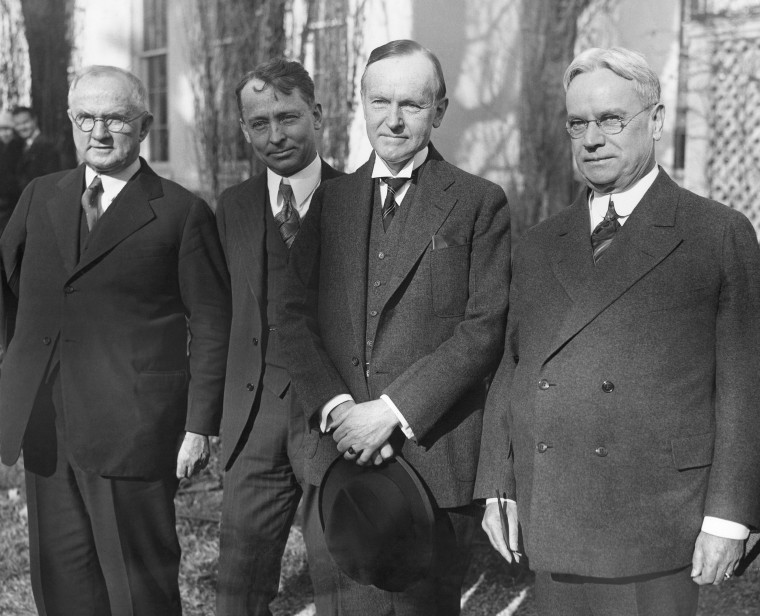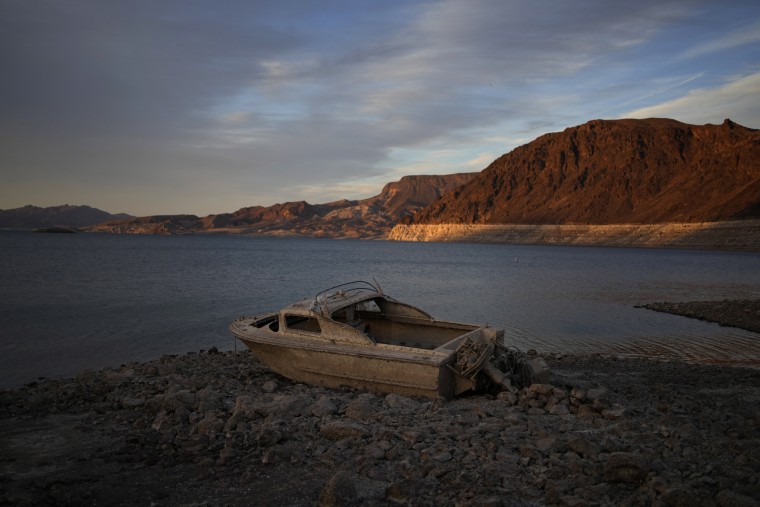The government official and engineer for whom Lake Mead is named would be "devastated" by water levels at the nation's largest reservoir dropping to historic lows, his great-granddaughter told NBC News on Thursday.
Elwood Mead would be "horrified and saddened by the tragic situation," said Diane Mead, 75, a businesswoman who lives in Lake Oswego, Oregon.
Elwood Mead ran the United States Bureau of Reclamation, a federal agency under the U.S. Department of Interior, from 1924 until his death 12 years later, according to the bureau's website.
He oversaw the development of the Hoover Dam, Grand Coulee and other complicated land projects. He died while in office on Jan. 26, 1936 — that same year, Lake Mead was named in his honor.
Diane Mead, who was born a decade after her great-grandfather died, said he would have been "horrified from a scientific perspective as well as a water rights perspective."
Elwood Mead believed that reservoirs and other artificial bodies of water should be formed to serve people and the environment, with water flowing robustly downstream, Diane said.
"If the lake drops to the point where water can't flow down, that would have devastated him," she said. "People should be more aware of taking care of our world."

"People might disagree with some of his views today," she added. "but he was doing that when he tried to open up water in the deserts, so we could have agriculture and feed the population."
The water level at Lake Mead was measured at 1,044.03 feet on Wednesday — the lowest elevation since it was filled in the 1930s.
If the reservoir drops below 895 feet — a possibility still years away — the lake would reach dead pool status, with potentially catastrophic consequences for millions of people across Arizona, California, Nevada and parts of Mexico.
"This is deadly serious stuff," Robert Glennon, an emeritus professor at the University of Arizona who specializes in water law and policy, told NBC News on Wednesday.
Diane Mead said she possesses many letters sent to her father over the years, including one from President Franklin D. Roosevelt. His materials, as well as stories passed down from one generation to the next, help give her insight into his views.
"Everyone always commented that not only did he have great knowledge of the subject of water usage and hydraulics, but he was also a very warm, compassionate individual," she said.
CORRECTION (June 25, 2022, 9:15 a.m. ET): A previous version of this article misstated when Elwood Mead died in office. It was 12 years after he was appointed the head of the United States Bureau of Reclamation, not 15.

